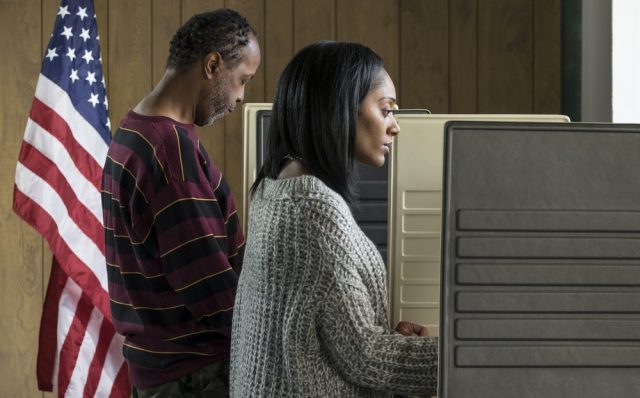 On Monday, the U.S. Supreme Court decided not to hear the case of North Carolina, Et Al v. North Carolina State Conference of the NAACP, et al, which centered on whether a state law requiring voter IDs was constitutional. The Fourth Circuit Court of Appeals had ruled that North Carolina’s law was unconstitutional because it improperly discriminated against black people.
On Monday, the U.S. Supreme Court decided not to hear the case of North Carolina, Et Al v. North Carolina State Conference of the NAACP, et al, which centered on whether a state law requiring voter IDs was constitutional. The Fourth Circuit Court of Appeals had ruled that North Carolina’s law was unconstitutional because it improperly discriminated against black people.
The law said, among other things, that voters had to show an approved form of ID before casting a ballot, shortened the state’s early voting period from 17 to 10 days, and got rid of same day registration and voting. The NAACP argued that the law intentionally discriminated against black people. The District Court didn’t agree, and dismissed the case after trial, but then the Fourth Circuit reversed that decision, saying that there was discriminatory intent, and blocked the law.
The Supreme Court announced that they will not hear the case, leaving the Fourth Circuit’s decision in place. The decision comes after what Chief Justice John Roberts described as a “blizzard of filings over who is and who is not authorized to seek review in this Court under North Carolina law.” The state’s petition for certiorari had been filed by the State, the then-Governor, along with the State Board of Elections and members of the Board. But when the new Governor and State Attorney General took office, they moved to dismiss the petition on behalf of the State and Governor, and then moved to dismiss it on behalf of everyone. The State Assembly argued that they couldn’t do that. It’s in the context of the ensuing mess that the Supreme Court decided not to hear the case.
Chief Justice Roberts wrote in a statement that the Court’s decision not to hear the case does not reflect any opinion or belief about either side’s position about the constitutionality of the voter ID law. He stated, “[t]he denial of a writ of certiorari imports no expression of opinion upon the merits of the case.”
[Image via Shutterstock]